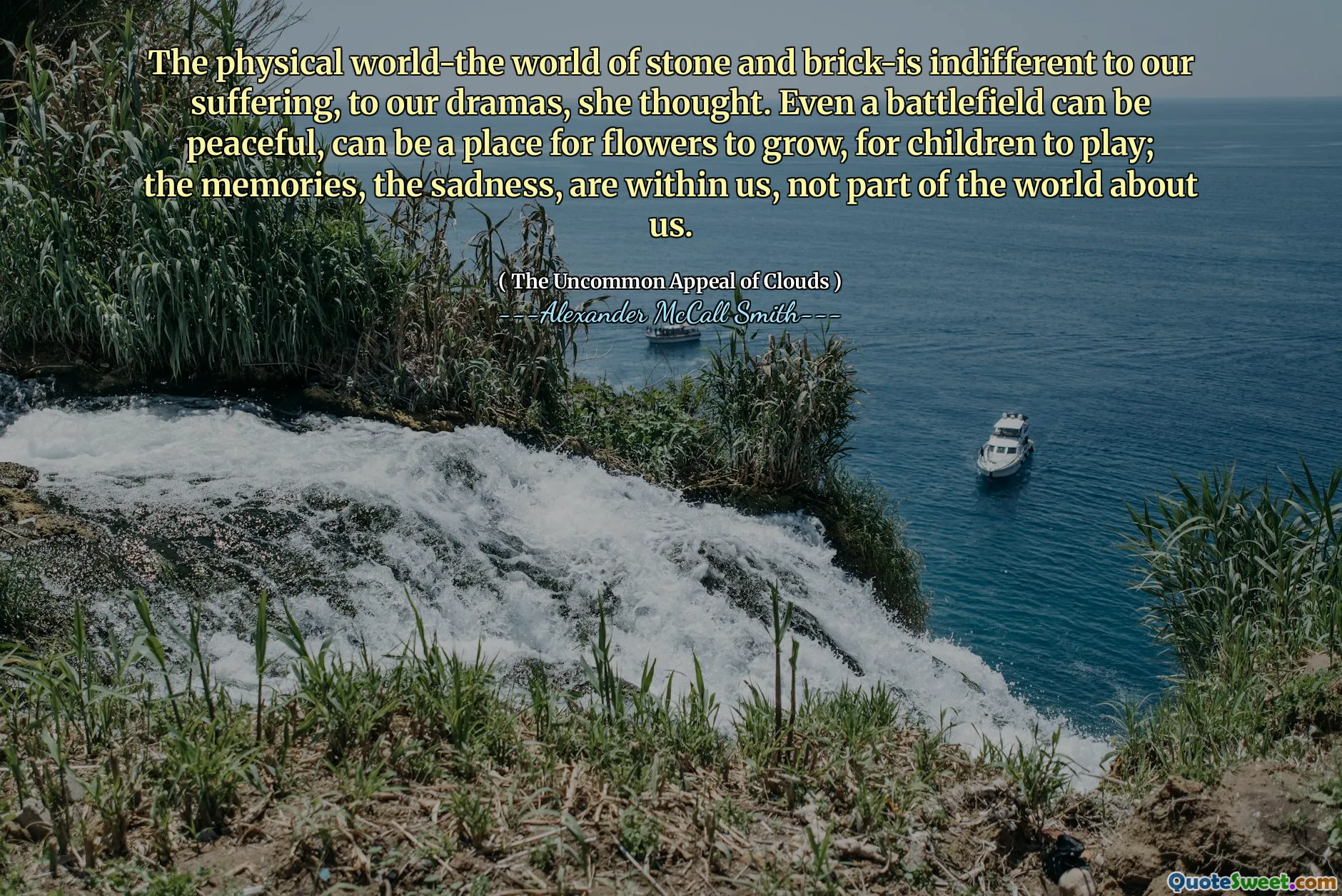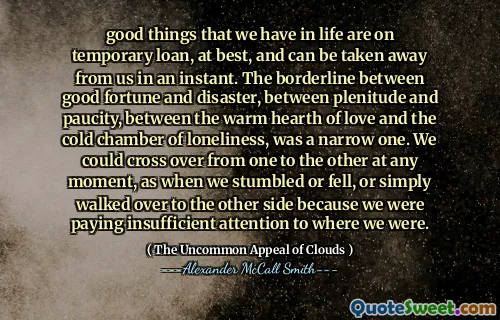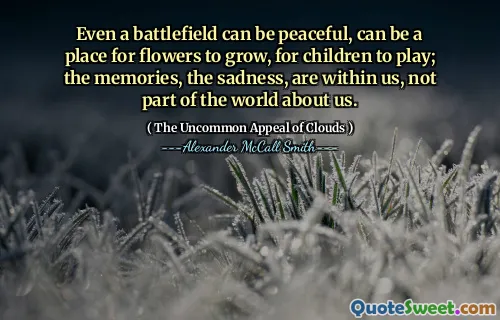
The physical world-the world of stone and brick-is indifferent to our suffering, to our dramas, she thought. Even a battlefield can be peaceful, can be a place for flowers to grow, for children to play; the memories, the sadness, are within us, not part of the world about us.
In "The Uncommon Appeal of Clouds," the protagonist reflects on the indifference of the physical world. The earth, composed of stone and brick, remains unaffected by human suffering and emotional turmoil. This suggests that nature continues its course regardless of human experiences, highlighting a stark contrast between our internal struggles and the external reality.
The character observes that even places marked by conflict, like battlefields, can transform into serene environments where life flourishes. This duality emphasizes that while we carry memories and sadness within us, the world outside is not inherently shaped by our personal dramas. It serves as a reminder that peace and beauty can emerge from even the most sorrowful contexts.











